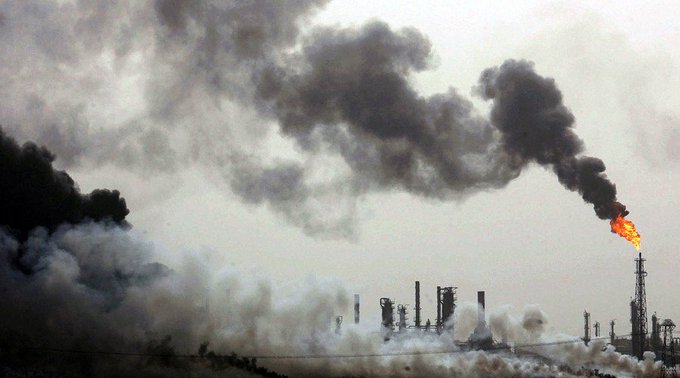ExxonMobil sued for decades-long cover up of climate change
Oil giant ExxonMobil is being sued for allegedly polluting a Massachusetts river and violating federal water laws. The suit also charges the company with knowing of climate change’s adverse affect, but hiding it.
Last year it was revealed the company started to conceal its own findings as early as 1977 that fossil fuels cause global warming.
“Communities were put in danger and remain in danger, all to cut costs from one of the most profitable corporations in the world,” said Bradley Campbell, president of the Conservative Law Foundation, in a released statement about the lawsuit filed on Thursday in the Massachusetts District Court.
BIG NEWS: We're filing the first lawsuit in the U.S. against ExxonMobil for climate cover-up: clf.org/newsroom/clf-f…#ExxonKnew #NowWeSue
CLF is a 4,000 member organization dedicated to protecting New England’s environment.
The lawsuit said ExxonMobil’s terminal outside Boston is leaking stormwater and industrial pollution into the Mystic River beyond what is allowed under the facility’s permits.
The suit further alleges the company made no provisions for storms brought on by extreme weather that could damage the facility and put waterways and communities there at greater environmental risk despite its knowledge of climate change.
“It’s time to make Exxon answer for decades of false statements to the public and to regulators and ensure that its Everett facility meets its legal obligation to protect thousands of people and the Boston Harbor estuary from toxic water pollution,”said Campbell. “For more than three decades, Exxon Mobil has devoted its resources to deceiving the public about climate science while using its knowledge about climate change to advance its business operations.”
Conservation Law Foundation (CLF) filed a lawsuit yesterday against ExxonMobil – the first lawsuit of its kind...fb.me/1AUJ5YmeS
According to the complaint, “the Everett Terminal is vulnerable to sea level rise, increased precipitation, increased magnitude and frequency of storm events, and increased magnitude and frequency of storm surges due to its location, elevation, and lack of preventative infrastructure. ExxonMobil has not implemented needed actions to address and eliminate these vulnerabilities.”
Exxon said in a statement it would it would "fight this in court,” and called the suit “yet another attempt to use the courts to promote a political agenda," according to the Hill.
In an interview with WBUR in May the facility had passed recent pollution prevention inspections from federal and state agencies.
In an interview with WBUR in May the facility had passed recent pollution prevention inspections from federal and state agencies.
Flint may sue Michigan over water pollution crisison.rt.com/78vk
The suit’s allegations come amid intense scrutiny of Exxon’s work studying climate change. Last year, InsideClimate News and the Los Angeles Times revealed that for decades, beginning in 1977, Exxon concealed its own findings that fossil fuels cause global warming, altered the climate and melted Arctic ice.
Oil giants agree to pay $425 million to reduce air pollutionon.rt.com/7jou
Exxon has denied the allegations.
A handful of Democratic attorneys general have launched investigations into the company’s climate science, including Massachusetts’s Maura Healey.
The company has disputed attacks on its climate science, as well, saying it worked on research with the Department of Energy, the United Nations and others.
“To suggest that we had reached definitive conclusions, decades before the world’s experts and while climate science was in an early stage of development, is not credible,” the statement said.
https://www.rt.com/usa/361243-exxonmobil-sued-river-pollution/






